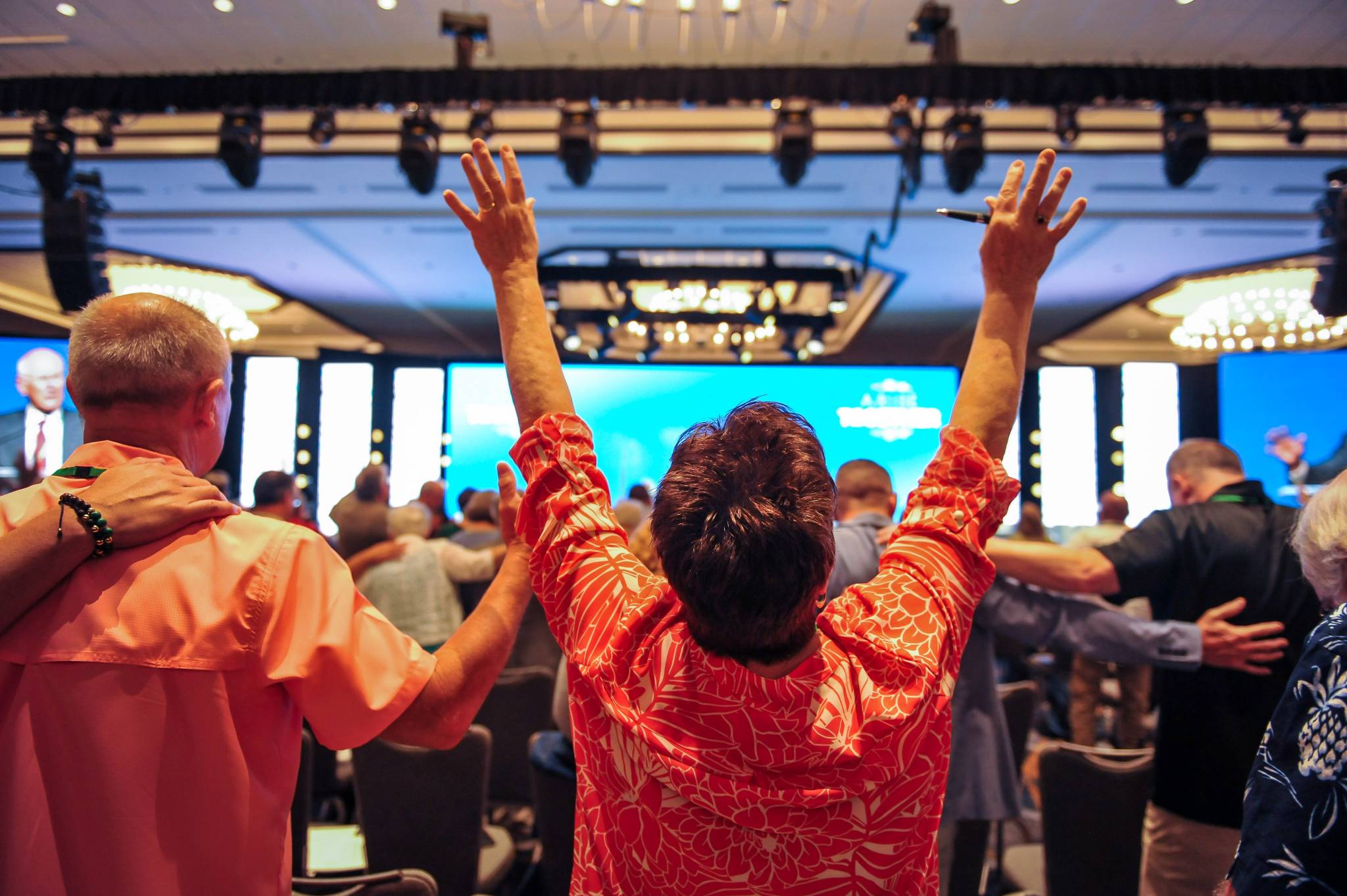A Barna report released in November 2021 found that nearly 40% of pastors were considering leaving ministry, part of the “Great Resignation” that followed the world’s experience with the novel coronavirus. This article by Chris Maxwell, which first appeared in Encourage in October 2018, offers encouragement to pastors (and others!) to care actively for their souls.
My friend’s text message was deep, though only including three words: “I am done.
My response only used one word to ask, “Why?”
“I’m emailing you a long note right now. We can talk after you read it,” my friend said.
Yes, he emailed me. Yes, the note was long—actually, 2,726 words of total desperation. Yes, I read it. And, yes, we engaged in a long dialogue about how he felt, what had brought him to that point, and what next steps would be helpful.
After our conversation I walked outside, staring at the moon and stars. I prayed deep, simple prayers for my friend and for others who are battling similar wars. So many leaders like this man feel the weight of pastoring a congregation is too heavy for them. They are bruised and bitter. They’ve tried hard—possibly too hard—to succeed in their callings.
Wounded, guilty, and unsure, they’re asking, “Why?” With so many thoughts bombarding their brains, they’re wondering, “What next?” They feel trapped. And alone. Are you trapped in a similar dilemma? Are you asking yourself similar questions? Are you processing thoughts and feelings that are causing doubts, defeat, worthlessness and panic to attack you? Have you considered ending your career—or even your own life? I want to sit with you in my office and listen to your story. I want to walk along the
beach with you and ask you open ended questions about your past, your present, and your future. I wish we could meet at a table and eat lunch, engaging in honest dialogue about the painful storms in the land of ministry.
 If you are sinking in despair or discouragement, and you haven’t reached out for help because you fear being honest about your situation, let me ask you to process these questions:
If you are sinking in despair or discouragement, and you haven’t reached out for help because you fear being honest about your situation, let me ask you to process these questions:
- What deep hurts continue to dwell in your inner world?
- How long have they been there?
- How are those hurts influencing your personal life, your family and your vocation?
- Why aren’t you talking with someone to work through those wounds?
- Who should you talk to?
- Will you contact them? Now?
Evaluating our lives by asking such questions isn’t pleasant or fun. But it can help us step toward healing. It can begin to set us free from being controlled by past hurts and present stress. It can offer ways of “casting our cares” on Christ who cares so deeply for us.
Galatians 6:2 tells us, “Bear one another’s burdens, and thereby fulfill the law of Christ.” Yet bearing one another’s burdens is not to be done with effort of our human muscle to hold the struggles of others. In one of my books—a slow and sudden God: 40 years of wonder—one of the poems reveals the difference between caring for others and carrying all their pain in our own strength:
people crave the medication of care, desiring what feels distant, hoping for
deep listeners, genuine lovers, gentle shepherds, kind mentors,
true friends at one table
where diverse backgrounds merge into single stories.
but care isn’t to be carried.
care doesn’t mean obsessed or controlled.
love hurts, as it should.
it wounds, as it should.
but love can cause deeper damage when not balanced with self-care and sabbath,
when not protected by receiving love. care. each day, intensely.
but do not carry the weight of others’ burdens.
care for them and help them learn to release, to receive.
listen, and let go.
love and bleed a little,
but glance at the sky and realize all is not up to you.
breathe deeply and
rest well, knowing that
you are the one who cares
but not the one who carries.
The two words pastoral care shouldn’t only refer to how we display pastoral care for others. It is a holy method of self-care— realizing our relationships with God are to bring healing our way before we preach or sing or serve such healing to others. Welcoming God’s love into our own lives isn’t just a conversion experience; it is a lifestyle.
Here are a few suggestions on addressing your own levels of stress and pursuing pastoral care:
- Do not only give care. Receive care.
- Do not only study Scripture to preach it. Dive into the Word. Deposit truth.
- Live in community, not in isolation. Find mentors, accountability partners, Christian counselors, and gentle shepherds to lead your in your life of shepherding.
- Take time off from pastoral work. Remember the Sabbath. Long walks, hours of silence, moments of wonder and relaxation—please care for the house of the Lord that is you.
- And, speaking about that “house of the Lord,” work to take care of your physical body and your mental health. Get the heart beating, the body sweating, and the mind thinking. This doesn’t mean becoming addicted to modern workouts to look cool and impress others. It means finding a life of balanced care.
- Refuse to let worship be what is only done in your church’s setting. Worship alone. Worship in other groups. Worship deeply, sincerely, calmly, joyfully.
- Journal. Don’t hold your feelings inside, but do not become a constant complainer. Release the wounds as a modern David journaling your own Psalms of lament, hurt, questions, confessions, praise, and reverence to your Listening Father.
- Keep priorities correct. Think about family. Think about self-care. Think about asking a friend to evaluate your priorities by examining your schedule and your budget.
- Reflect on the last times you laughed, you cried, and you enjoyed a wonderful night of sleep. Ask, “What do those answers tell me?”
- Make your own list of suggestions to improve pastoral care in your life…
Thankfully, my friend who texted me so desperately did not resign. He’s still preparing sermons, leading board meetings, visiting his church members and preaching biblical truth. But he’s found a better balance.
He’s seeing a counselor. He’s finding ways to sleep better and exercise more often. He’s making time with his family a priority. And he has fallen in love with God again rather than letting his ministry take the place of his first love.
When I recently met with him and his wife, her smile answered the question I wanted to ask them. Her prayers were being answered. They were finding a healthy balance of pastoral care for others and for themselves. She said: “He is now enjoying life again. And so am I.”
Chris Maxwell joined Emmanuel College as Director of Spiritual Life and Campus Pastor after pastoring in Orlando, Fla., for 19 years. He also co-hosts Next Step Leadership podcast. Learn more about Chris at chrismaxwell.me.


